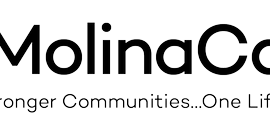Key findings show that most rankings either remained stable or have improved since the 2020 report was released.
Ann Arbor SPARK recently released the fourth iteration of its Benchmarking the Ann Arbor Region report. The purpose of the report is to take the pulse of the Ann Arbor region in comparison to a specific competitive set of technology-driven communities and their economies on a regular basis. The objective is not to make policy recommendations, but to provide clear, unbiased data with regional analysis on a series of metrics that are often applied without context.
The eight metrics analyzed in the report are:
- University R&D
- Population Movement
- Share of Remote Jobs
- Venture Capital Activity
- Housing Affordability
- Percent of People Experiencing Poverty
- Driving Industry Employment
- Labor Market
The data and analysis for each metric will answer some questions, and hopefully spur additional thought, questions, and action.
“While Ann Arbor remains an advantageous region for innovation and business location, we recognize that the pandemic has profoundly impacted how people work, where they live, and what they value,” said Paul Krutko, Ann Arbor SPARK president and CEO. “It is Ann Arbor SPARK’s focus to respond to these challenges and create opportunities that will benefit our communities. A strong commitment to equity and environmental stewardship will play a significant role for future growth in service of prosperity for all.”
NOTABLE FINDINGS
Ann Arbor continues to hold the top spot for University R&D — the amount each university spends on research and development. This metric is a valuable indicator of a region’s inclination for risk taking, proving ideas, and adding to the innovation pipeline. Additionally, R&D investments help to build a conduit of research for future innovations, feeding a region’s entrepreneurial ecosystem.
Across the remaining set of metrics, Ann Arbor ranked:
- Second in population movement, or net migration, up from third place in 2020. Washtenaw County is still the most popular destination for movers within Michigan.
- Third for share of remote jobs. The high ranking implies that a lot of existing jobs within Washtenaw County are tech-based and easily done from home, which is in line with the increasing number of tech-based jobs in Washtenaw County’s economy.
- Third for venture capital activity. As a result of controlling for population, Ann Arbor continues to rise above most other regions in this category.
- Seventh in housing affordability. There is a perception of Washtenaw County as an expensive housing market. This is borne out in the data when compared to Midwestern and rust belt cities. However, when compared to Austin, Berkeley, Boulder, and Portland, Ann Arbor is relatively affordable. Especially now that the housing market is referred to as a “seller’s market” and housing prices remain inflated.
- Fourth for the percentage of people experiencing poverty. Paired with other metrics like housing affordability and unemployment, this paints a significantly different picture of the entire competitive set. Including it in the report is necessary to understand that while many of these regions are listed on “best places” lists and touted as high growth technology economies, these benefits are not enjoyed by all.
- Ninth in driving industry employment, which is consistent with the previous ranking in the 2020 report.
- Sixth in unemployment, the same ranking as in the 2020 report, and ninth in labor force participation, up from tenth in 2020. These key labor market metrics are important for understanding what economic recovery post-pandemic will mean for job seekers.
ABOUT THE COMPETITIVE SETS AND DATA
Many of the selected regions were chosen due to their inclusion in anecdotal comparisons to the Ann Arbor region. However, where possible, the data have been normalized for population. Most metrics are compared at the county level, some at the city, and some at Metropolitan Statistical Area (MSA). It’s important to note that the data used in this report does not yet include the full economic impact of the COVID-19 pandemic.
ABOUT ANN ARBOR SPARK
Ann Arbor SPARK, a non-profit organization, is advancing the region by encouraging and supporting business acceleration, attraction, and retention. The organization identifies and meets the needs of businesses at every stage, from startups to large organizations. Ann Arbor SPARK collaborates with business, academic, government, and community investor partners. For more information, please call (734) 761-9317 or visit www.AnnArborUSA.org.











